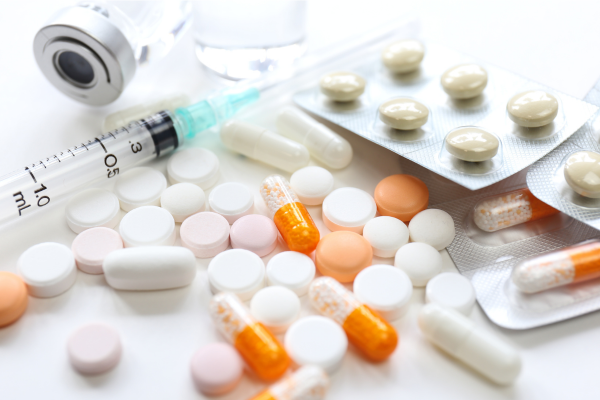During the summer months, it is not uncommon to hear news of unpredictable weather occurring throughout the country. Natural disasters like hurricanes, wildfires, tornadoes, and flooding, can impact communities in an instant. Would you know what to do with your medications in the event of an emergency? Many Alphas are on a wide range of medications including inhalers, pills, and temperature-sensitive intravenous medicine. With this in mind, the Food and Drug Administration (FDA) offers valuable information detailing the important steps every Alpha should know in order to safeguard their medications in the event of a natural disaster.
Before a Natural Disaster
- Keep an up-to-date list of medications, including dose and indicated use
- Know how much medication you have on hand
- Obtain early refills if you anticipate access to their pharmacies will be disrupted
- Place medication bottles or packages in water-tight containers (such as plastic containers with lids) if there is a possibility of flooding or other water damage
- Have ice available for medications that require refrigeration
After a Natural Disaster
After a natural disaster, it is important to inspect all drugs for signs of damage or tampering. Below is more information about what to do if your medications have been exposed to excessive heat (fire), unsafe water (flooding), or lack of refrigeration.
Drugs Exposed to Excessive Heat (Fire)
The effectiveness of drugs can be destroyed by high temperatures from a fire. If you think your medicines have been exposed to excessive heat, consider replacing them.
Drugs Exposed to Unsafe Water
Drugs exposed to flood or unsafe municipal water may become contaminated. This contamination may lead to serious health effects.
The FDA recommends that drugs – even those in their original containers with screw-top caps, snap lids, or droppers – should be discarded if they come into contact with flood or contaminated water. In addition, medicines placed in other storage containers should be discarded if the medicines come in contact with flood or contaminated water.
Drugs that Need to Be Reconstituted (Made Into a Liquid)
Drugs that have to be reconstituted (made into a liquid using water) should be mixed only with purified or bottled water. Liquids other than purified or bottled water should not be used to reconstitute these products.
Drugs that Need Refrigeration
Some drugs require refrigeration (for example, alpha-1 augmentation therapy, insulin, and certain liquid antibiotics). If electrical power has been off for a long time, consult your healthcare provider or pharmacist to see if the drug should be discarded and replaced. However, if the drug is absolutely necessary to sustain life (for example, insulin), it may be used until a new supply is available.
Because temperature-sensitive drugs lose potency if not refrigerated, they should be replaced with a new supply as soon as possible. For example, insulin that is not refrigerated is effective for a shorter period of time than the labeled expiration date.
If you are concerned about the efficacy or safety of a particular product, contact your pharmacist, healthcare provider, or the manufacturer’s customer service department.
While natural disasters can often be unpredictable, it is possible to plan in advance to prevent loss of medications. If you are affected by a natural disaster, please call your AlphaNet Coordinator for assistance, as AlphaNet has resources available to assist you. Also, please notify your healthcare provider or pharmacist to make them aware of any issues you may be having with your medications.
Source: https://www.fda.gov/drugs/emergency-preparedness-drugs/safe-drug-use-after-natural-disaster
Learn more about preparing for an emergency or natural disaster as an Alpha “Emergency Preparedness for Alphas.”
